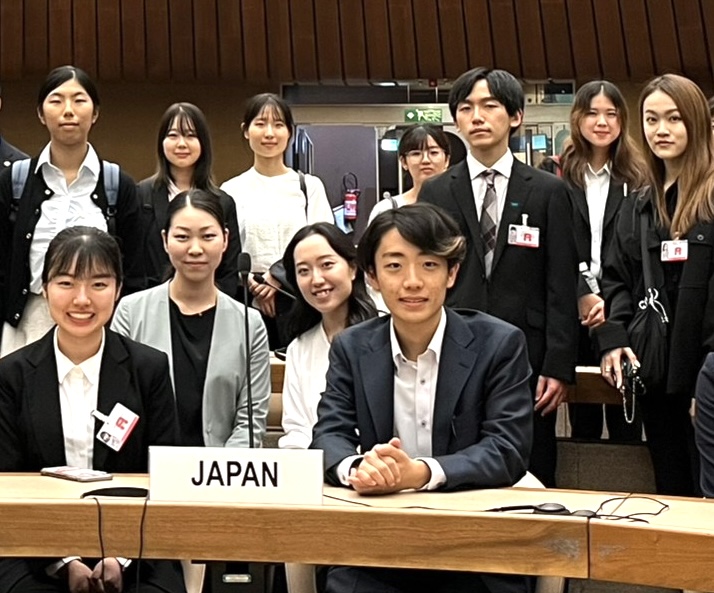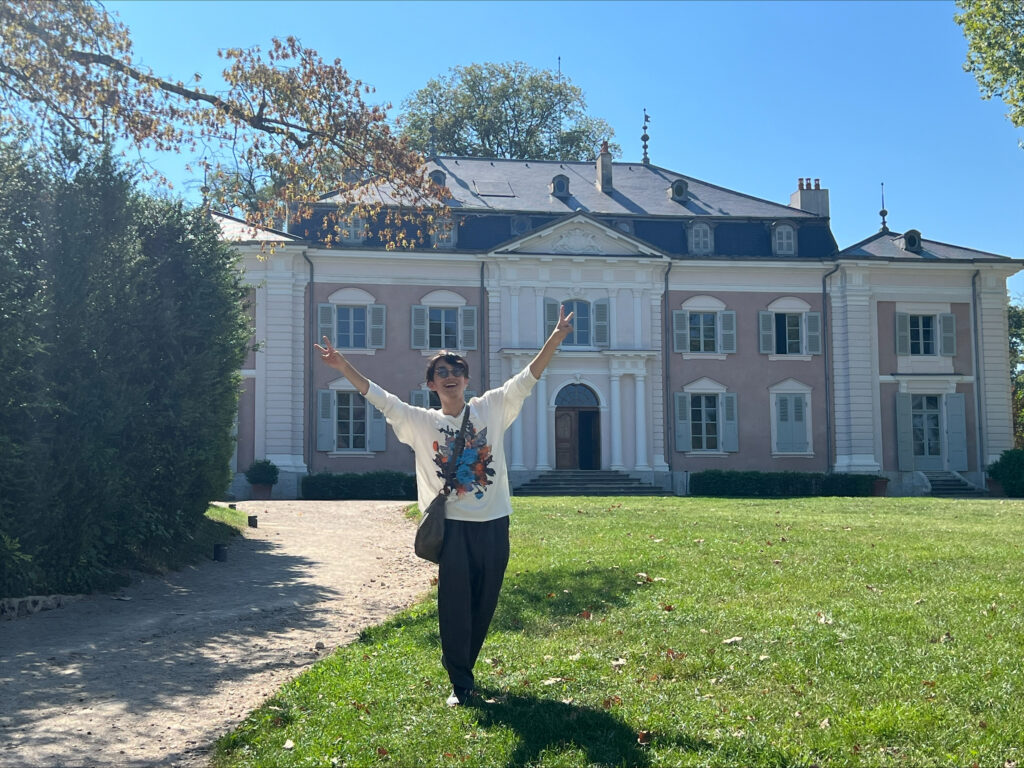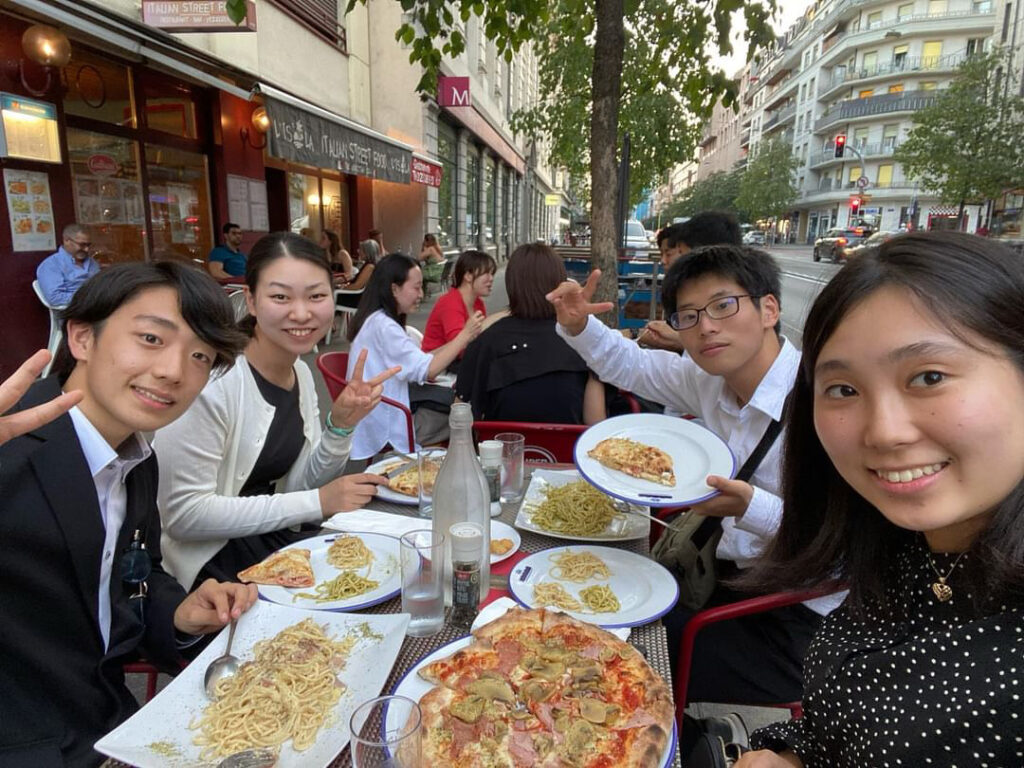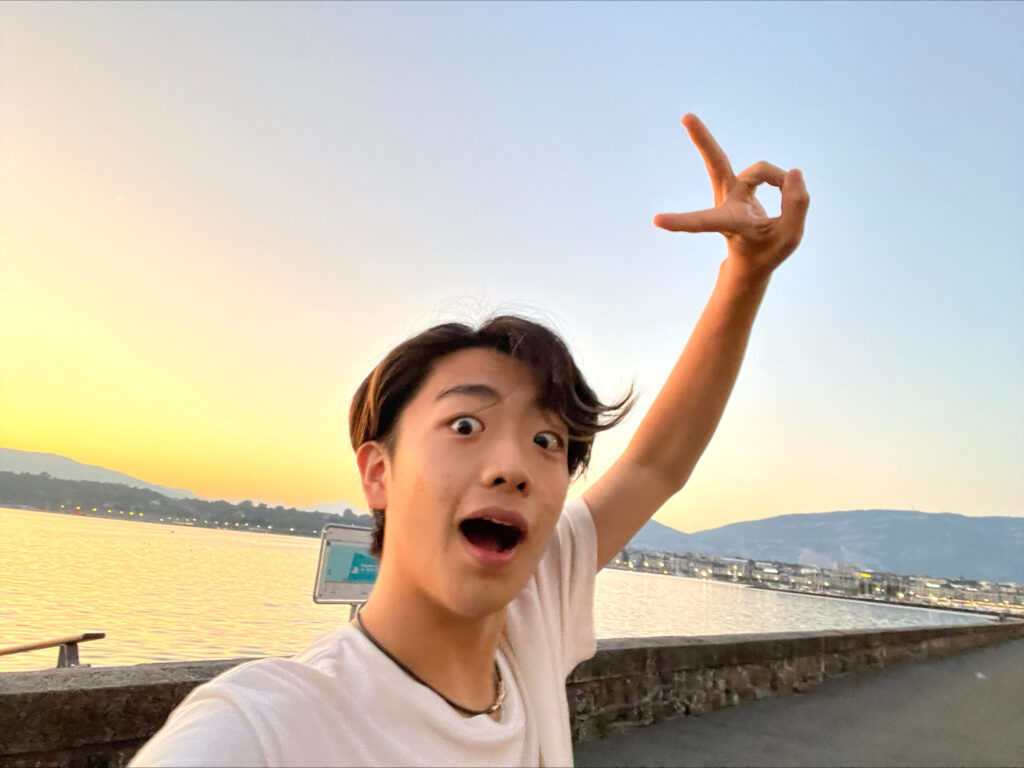Two weeks in Geneva, where I was inspired by the aspirations of officials working for international organization.

Every year, many Sophia University students study abroad in countries all over the world outside of Japan. How did they manage to find their way through the differences in languages, cultures, and lifestyles? Here are some voices of students who studied abroad.
What made you decide to join the program?
I came to Tokyo from the Kansai region to join Sophia University and thought, ‘Since I have come all the way to Sophia in Tokyo, is there any sort of overseas program that I can attend through the university? ‘I had no idea what kind of people worked for international organizations like the UN in Geneva, a city that attracts people from all over the world, and what their ambitions were, and this is why I was so intrigued by the idea of studying abroad.
Did you have any concerns before studying abroad?
I was anxious about my English skills, as it was the first time I had studied abroad since I studied in the Philippines when I was in my third year of junior high school, and I imagined that I would be communicating in English on a practical basis since the program was a hands-on basis. On the other hand, as part of my preparations for the program, I studied beforehand, particularly WIPO (World Intellectual Property Organization), which I was very interested in. However, I wish I had studied a little more in advance regarding Japan’s initiatives at the UN, such as the Permanent Mission of Japan to the Conference on Disarmament Affairs.
What was the atmosphere like at the university and among the students?
Because of the hands-on nature of the program, many of the people I spoke to were working for the UN and other international organizations, however, because of the diverse nature of Geneva, where people of different ethnic backgrounds gather, the atmosphere was very open and attentive. Many of the international organizations in Geneva close at 17:00, so we had less than two hours before the sunset around 19:00 to go for a sightseeing tour or to go out for pizza and cheese fondue to make new friends.
Were there any differences in the classes, learning content, exams, etc. compared to Japan?

Because it was a practical learning-based program, it mainly consisted of briefings, Q&A sessions, job guidance and workplace tours, rather than classroom lectures, but compared to Japan I think the atmosphere was more receptive towards active Q&A sessions. I also put a lot of effort into engaging in discussions with local staff outside of the classroom. I found opportunities to talk with them in the cafeteria and while in transit.
What are some of the unique attractions of your study-abroad destination and what new things did you notice?

Due to the nature of Geneva, with many major international organizations within walking distance, it enables me to visit several international organizations in one day. I realized that Geneva is a very meaningful place in terms of developing English language skills, as most people there learnt English as a second language.
What was the most memorable or shocking experience?

The food was simply delicious. The pizza, cheese fondue, chocolates, pasta, and bread all tasted very good, although the living cost was definitely very expensive, and the yen was very low. A small salad costs about 600 Japanese yen, and I was worried about the cost of food, but the hotel had a kitchen and a full range of cooking utensils, including frying pans, so I was able to enjoy cooking with other program participants and get over it.
Compared to before and after your study abroad, what do you feel you have grown and what has changed in your mindset?

Through experiences interacting with UN staff from diverse backgrounds, get to know that they have chosen their own paths, as well as having to take care of myself, cooking or taking an early morning run, I became more aware of the value of being self-aware, and independent in whatever I do, thinking, learning, or having fun.
How do you think your study abroad experience will affect your life in the future?
My previous view that studying abroad should be in an English-speaking country like the US, Canada, the UK or Australia has definitely changed. In addition, after hearing the stories of people who worked in a number of different jobs before becoming UN staff, I made up my mind to keep moving forward and continuing to evolve in whatever I do.
What advice would you give to people who are wondering whether they should go to study abroad?
In today’s online society, we are often exposed to false and belittling behavior, or often see beautiful, cool, cute, perfect-looking figures and goods, and it is easy to feel the need of being perfect. Nevertheless, I think it’s okay to think ‘If lost, move on, and think afterwards.’